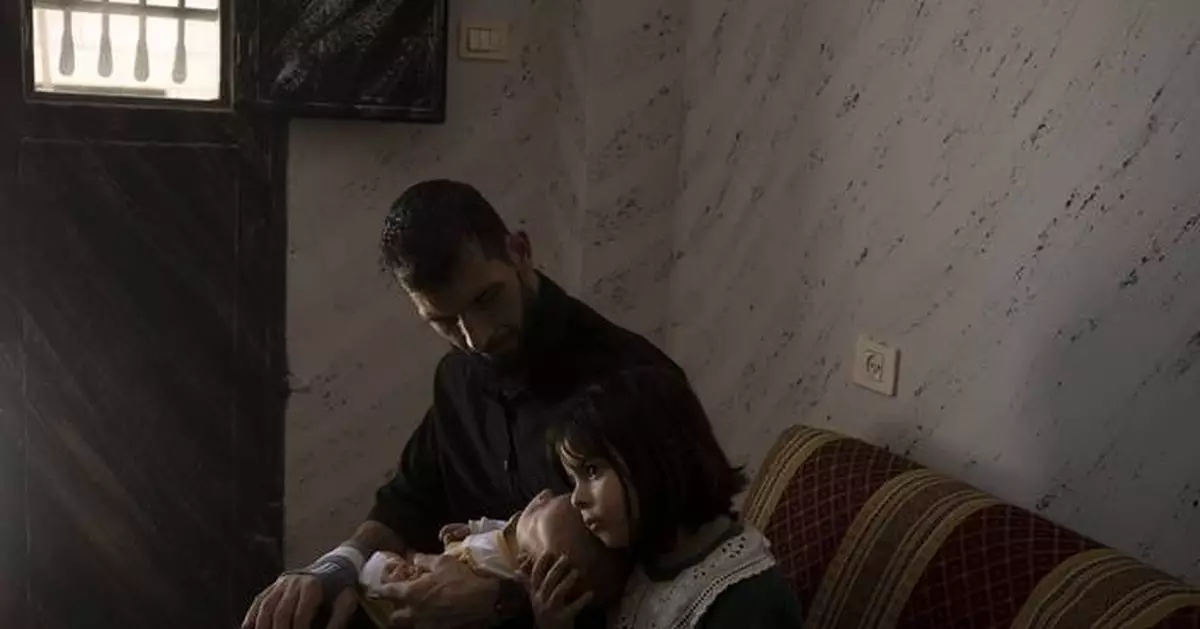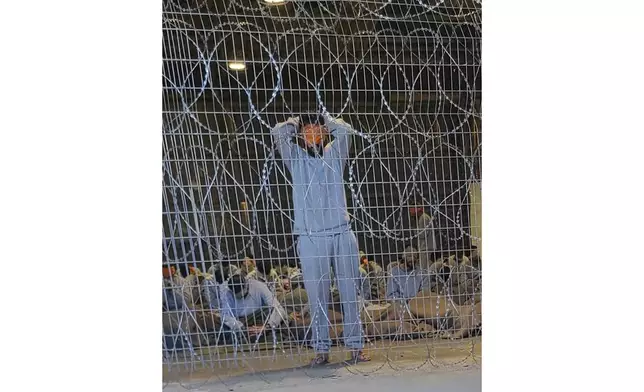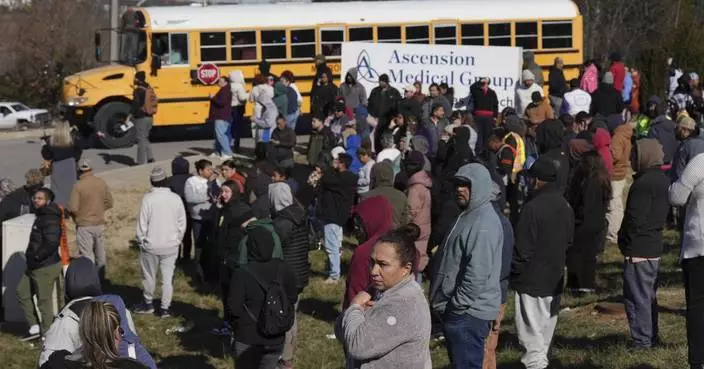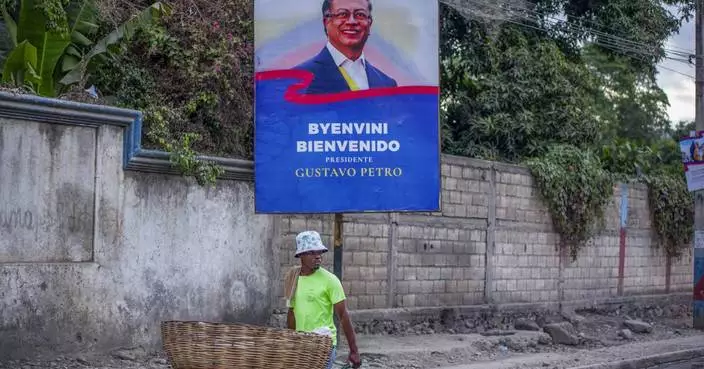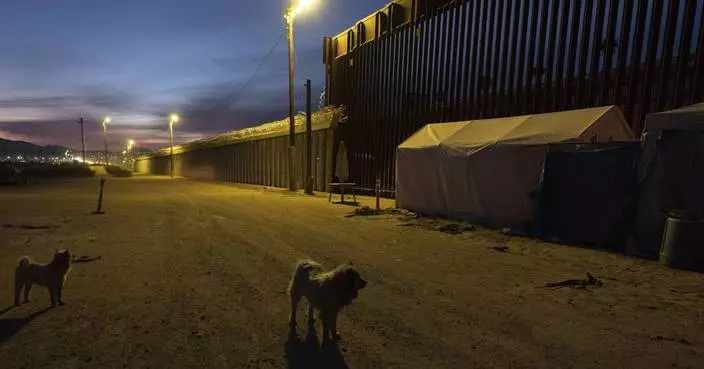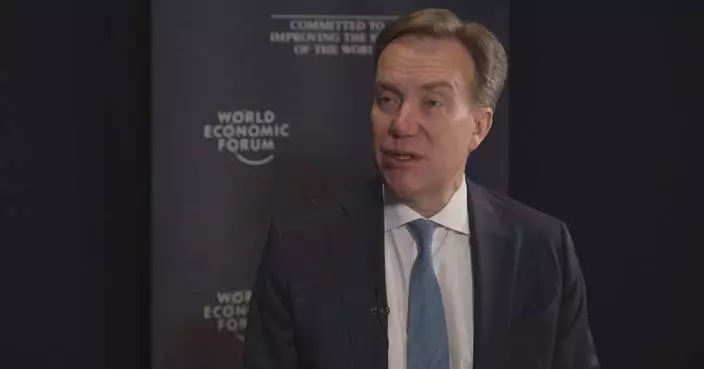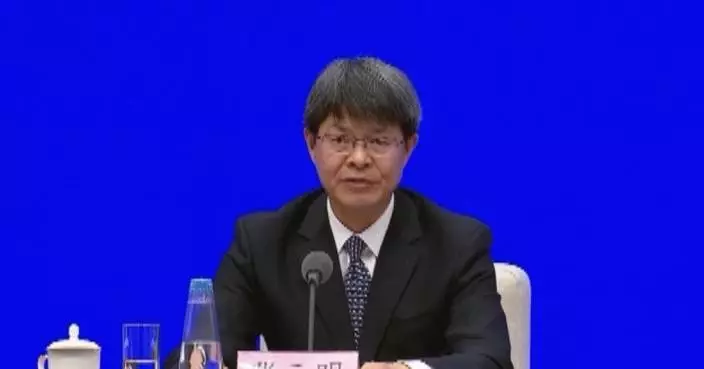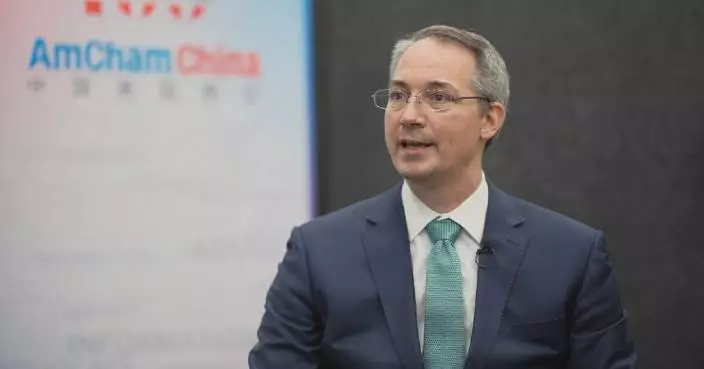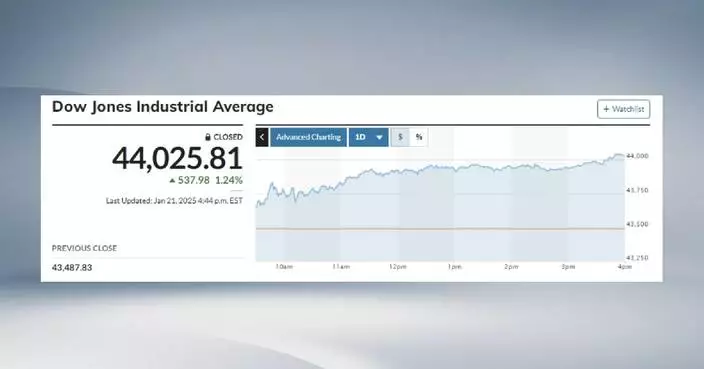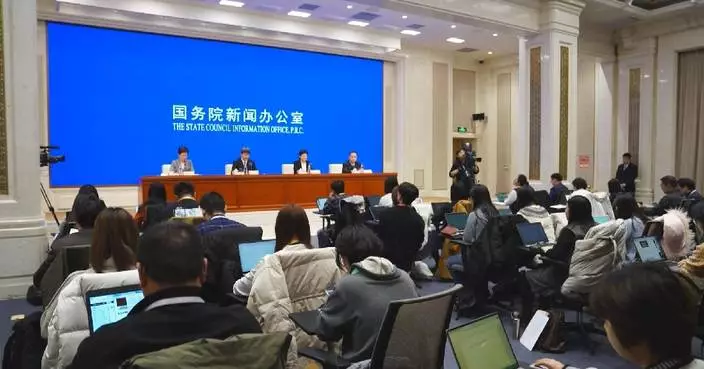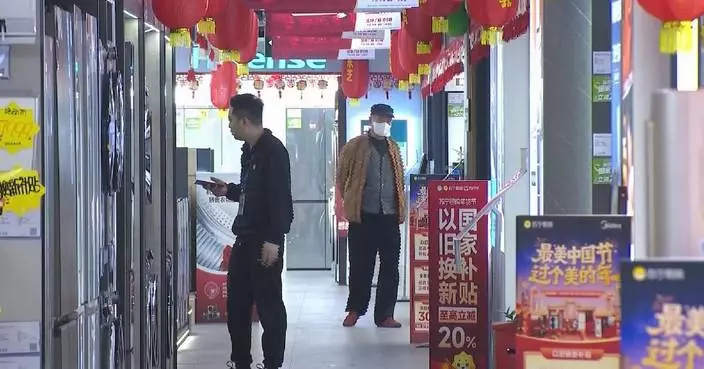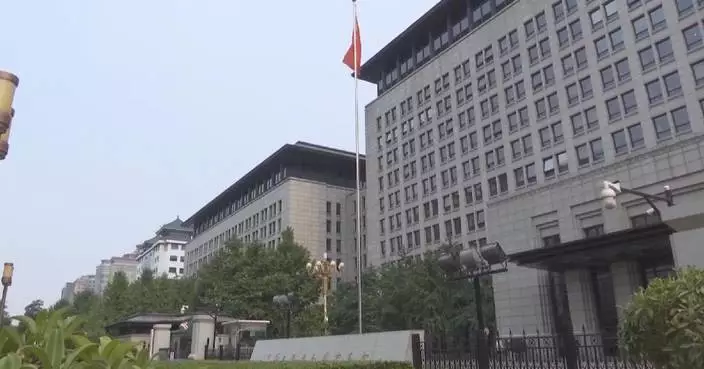OUTSIDE OFER PRISON, West Bank (AP) — Frequent beatings, overcrowding, withholding of basic rations. Released Palestinians have described to The Associated Press worsening abuses in Israeli prisons crammed with thousands detained since the war in Gaza began 10 months ago.
Israeli officials have acknowledged that they have made conditions harsher for Palestinians in prisons, with hard-line National Security Minister Itamar Ben Gvir boasting that prisons will no longer be “summer camps” under his watch.
Click to Gallery
Freed Palestinian prisoner Muazzaz Abayat, 37, poses for a portrait at home in the West Bank city of Bethlehem, Wednesday, July 17, 2024, days after his release from Israel's Naqab Prison. “At night, he hallucinates and stands in the middle of the house, in shock or remembering the torment and pain he went through,” said his cousin, Aya Abayat. (AP Photo/Maya Alleruzzo)
Palestinian boxer Muazzaz Abayat, 37, holds his 2-month-old son Mohammed and daughter Mira, 5, at home in the West Bank city of Bethlehem, Wednesday, July 17, 2024, days after his release from Israeli prison, frail, disoriented and with no initial memory of his family. (AP Photo/Maya Alleruzzo)
A Palestinian family stands outside of Israel's Ofer Prison near the West Bank city of Ramallah, Thursday, July 4, 2024, though they did not see their loved one being released. (AP Photo/Maya Alleruzzo)
A Palestinian man carrying his personal effects leaves Israel's Ofer Prison near the West Bank city of Ramallah, Thursday, July 4, 2024. (AP Photo/Maya Alleruzzo)
Palestinian men are released from Israel's Ofer Prison near the West Bank city of Ramallah, Thursday, July 4, 2024. (AP Photo/Maya Alleruzzo)
Freed Palestinian prisoner Muazzaz Abayat, 37, poses for a portrait at home in the West Bank city of Bethlehem, Wednesday, July 17, 2024, days after his release from Israel's Naqab Prison. “At night, he hallucinates and stands in the middle of the house, in shock or remembering the torment and pain he went through,” said his cousin, Aya Abayat. (AP Photo/Maya Alleruzzo)
Freed Palestinian prisoner Mohamed al-Salhi poses for a portrait at home, in the West Bank city of Ramallah, Wednesday, July 3, 2024. He saw harsher conditions in his Israeli-run prison in Jerusalem immediately after Oct. 7, 2023, while he was serving a 23-year sentence for forming an armed group. (AP Photo/Maya Alleruzzo)
Palestinian activist Munthir Amira, who was arrested and jailed by Israel in December, poses for a portrait inside of the Aida refugee camp in the West Bank city of Bethlehem, Friday, July 5, 2024. During months in administrative detention, he said prison guards regularly beat detainees for punishment or often for no reason at all. (AP Photo/Maya Alleruzzo)
Retired Arabic language professor Omar Assaf speaks on his mobile phone between two photos of himself: on the left, an undated photo before he was held by Israel under administrative detention at Ofer Prison, and at right, after his release, at his home in the West Bank city of Ramallah, Wednesday, July 3, 2024. (AP Photo/Maya Alleruzzo)
This undated photo from Winter 2023 provided by Breaking The Silence, a whistleblower group of former Israeli soldiers, shows blindfolded Palestinian prisoners captured in the Gaza Strip by Israeli forces at a detention facility on the Sde Teiman military base in southern Israel. (Breaking The Silence via AP)
This undated photo from Winter 2023 provided by Breaking The Silence, a whistleblower group of former Israeli soldiers, shows Palestinian prisoners captured in the Gaza Strip by Israeli forces at a detention facility on the Sde Teiman military base in southern Israel. (Breaking The Silence via AP)
A Palestinian youth stands on a hill overlooking Israel's Ofer Prison, near the West Bank city of Ramallah, Wednesday, July 3, 2024. Released Palestinians have described to The Associated Press worsening abuses in Israeli prisons crammed with thousands detained since the war in Gaza began 10 months ago. (AP Photo/Maya Alleruzzo)
Palestinian political activist Munthir Amira demonstrates how he was treated by Israeli guards during his imprisonment, outside of the gate to Aida refugee camp in the West Bank city of Bethlehem, Friday, July 5, 2024. He said that he seemed to have been detained over his Facebook posts against the Gaza war since he was interrogated about them. (AP Photo/Maya Alleruzzo)
Palestinian boxer Muazzaz Abayat, 37, holds his 2-month-old son Mohammed and daughter Mira, 5, at home in the West Bank city of Bethlehem, Wednesday, July 17, 2024, days after his release from Israeli prison, frail, disoriented and with no initial memory of his family. (AP Photo/Maya Alleruzzo)
Four released Palestinians told the AP that treatment had dramatically worsened in prisons run by the ministry since the Oct. 7 attacks that triggered the latest war between Israel and Hamas in Gaza. Some emerged from months of captivity emaciated and emotionally scarred.
A fifth prisoner, Muazzaz Abayat, was too weakened to detail his experience soon after his release in July following six months at southern Israel’s Naqab prison. Frail-looking and unable to focus, he could only muster the strength to speak for several minutes, saying he was regularly beaten.
Now at home outside Bethlehem, the 37-year-old can hardly leave his armchair.
“At night, he hallucinates and stands in the middle of the house, in shock or remembering the torment and pain he went through,” said his cousin, Aya Abayat. Like many of the detained, he was put under administrative detention, a procedure that allows Israel to detain people indefinitely without charge.
The AP cannot independently verify the accounts of the prisoners. But they described similar conditions, even though they were held separately. While Abayat was only able to speak briefly, the other four spoke to the AP at length, and one requested anonymity for fear of being rearrested. Their accounts match reports from human rights groups that have documented alleged abuse in Israeli detention facilities.
Alarm among rights groups over abuses of Palestinian prisoners has mainly focused on military facilities, particularly Sde Teiman, a desert base where Israeli military police have arrested 10 soldiers on suspicion of sodomizing a Palestinian detainee. The detention facility at the base has held most of the Palestinians seized in raids in the Gaza Strip since the war began.
The soldiers, five of whom have since been released, deny the sodomy allegation. Their defense lawyer has said that they used force to defend themselves against a detainee who attacked them during a search, but did not sexually abuse him.
The Israeli army says 36 Palestinian prisoners have died in military-run detention centers since October. It said some of them had “previous illnesses or injuries caused to them as a result of the ongoing hostilities,” without elaborating further.
According to autopsy reports for five of the detainees, two bore signs of physical trauma such as broken ribs, while the death of a third “could have been avoided if there had been greater care for his medical needs.” The reports were provided to the AP by Physicians for Human Rights-Israel, an Israeli rights organization whose doctors observed the autopsies.
Facing calls to shut down the Sde Teiman facility, the military has been transferring hundreds of Palestinians from the base to the prisons run by Ben Gvir’s ministry.
But according to Abayat and the others who spoke to the AP, conditions in those facilities are traumatic as well.
Munthir Amira, a West Bank political activist who was held in Ofer Prison, said guards regularly beat detainees for punishment or often for no reason at all.
He said he and 12 others shared a cell with only six beds and a few thin blankets, freezing during the winter months. When prisoners had to go to the bathroom, they were handcuffed and bent over, and they were let outside for only 15 minutes twice a week, he said. Amira was held in administrative detention, apparently over his Facebook posts critical of Israel.
He said he lost 33 kilograms (72 pounds) during his three months in detention because of minimal food.
The treatment drove some to the edge: Amira recounted a day when he and his cellmates watched through their cell window as another inmate tried to kill himself by jumping off a high fence. He said they banged on their door to get help. Instead, he said, soldiers with two large dogs entered their cell, bound their hands, lined them up in the corridor and beat them, including on their genitals.
He said that when he was first arrested in December, guards ordered him to strip naked and spread his legs, then beat him into submission when he refused. During the ensuing examination, one guard prodded his genitalia with a metal detector, he said.
The National Security Ministry said in a statement to the AP that it was not aware of the claims of abuse from the five released men. It said it follows “all basic rights required” for prisoners, and that detainees can file complaints that will be “fully examined.”
But it said it has intentionally “reduced conditions” for Palestinian detainees “to the minimum required by law” since Oct. 7. The purpose, it said, “is to deter ... terror activities.”
Since the war began, the Palestinian prison population has nearly doubled to almost 10,000, including detainees from Gaza and several thousand people seized from the West Bank and east Jerusalem, according to HaMoked, an Israeli rights group that gathers figures from prison authorities.
Those detained include alleged militants seized in raids in the West Bank and Palestinians suspected in attacks on soldiers or settlers. But others also have apparently been detained for social media posts critical of Israel or past activism, according to a report from the United Nations human rights office.
All four former detainees who spoke at length said hunger was perhaps their greatest challenge.
Breakfast was 250 grams (9 ounces) of yogurt and a single tomato or pepper shared among five people, said Omar Assaf, a Ramallah-based retired Arabic language professor, also held at Ofer. He, too, said he was interrogated over his social media posts.
For lunch and dinner, he said, each person received two-thirds of a cup of rice and a bowl of soup shared with others.
“You didn’t see the color of fruit ... not a piece of meat,” he said.
Harsher conditions were imposed immediately after Oct. 7, according to Mohamed al-Salhi, who at the time was serving a 23-year sentence in a Jerusalem prison for forming an armed group.
Days after the attack, he said, guards stripped his cell of everything, including radios, televisions and clothing. Eventually, the number of inmates in the cell grew from a half-dozen to 14, and curtains in the communal showers were removed, leaving them to wash exposed, he said. Al-Salhi was released in June after completing his sentence.
A half-dozen Palestinian families gathered outside Ofer one day earlier this month to await their relatives’ release. As the gate slid open, several emaciated-looking men, with unkempt hair and rough beards, walked out before dropping to the ground to pray.
Mutasim Swalim embraced his father. He said he spent a year in prison over a Facebook post.
“The taste of freedom is very nice,” he said.
Others declined to speak.
“I just spent two months in prison,” one said as he staggered by. “I don’t want to go back.”
Associated Press journalists Maya Alleruzzo in Bethlehem and Melanie Lidman in Jerusalem contributed to this report.
Find more of AP’s coverage at https://apnews.com/hub/israel-hamas-war
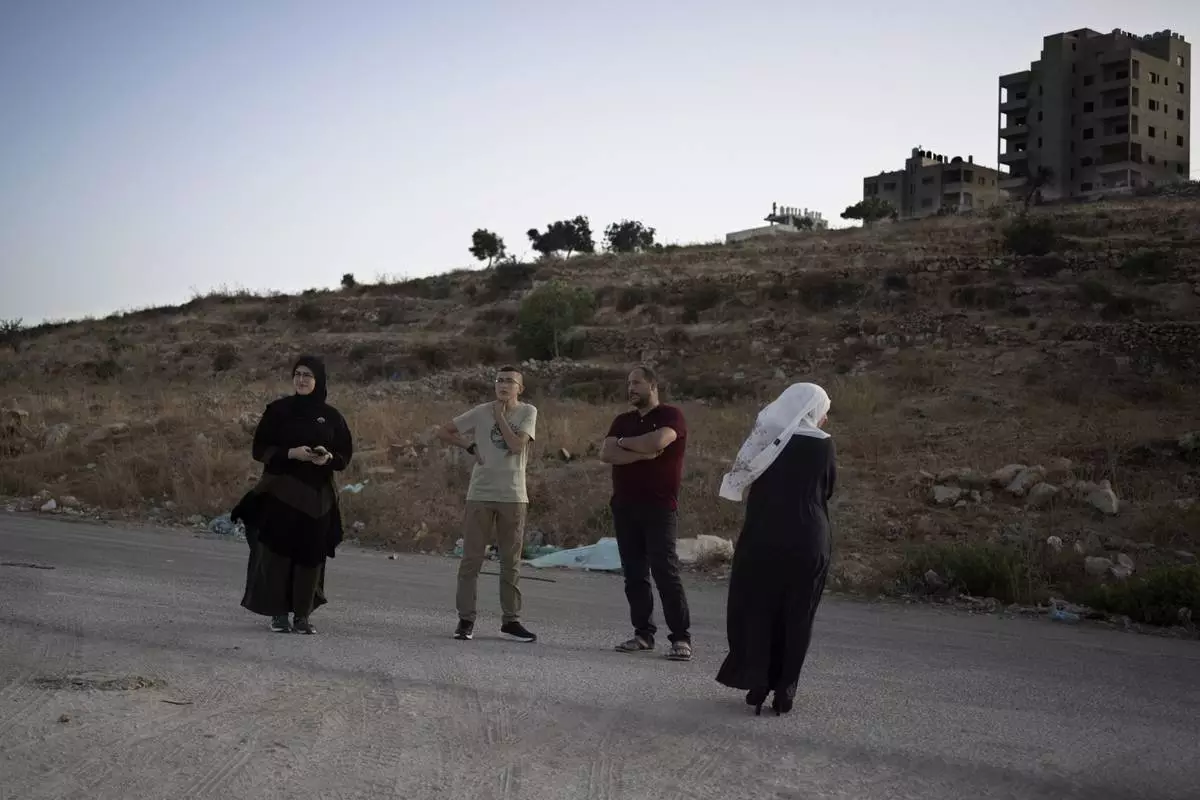
A Palestinian family stands outside of Israel's Ofer Prison near the West Bank city of Ramallah, Thursday, July 4, 2024, though they did not see their loved one being released. (AP Photo/Maya Alleruzzo)
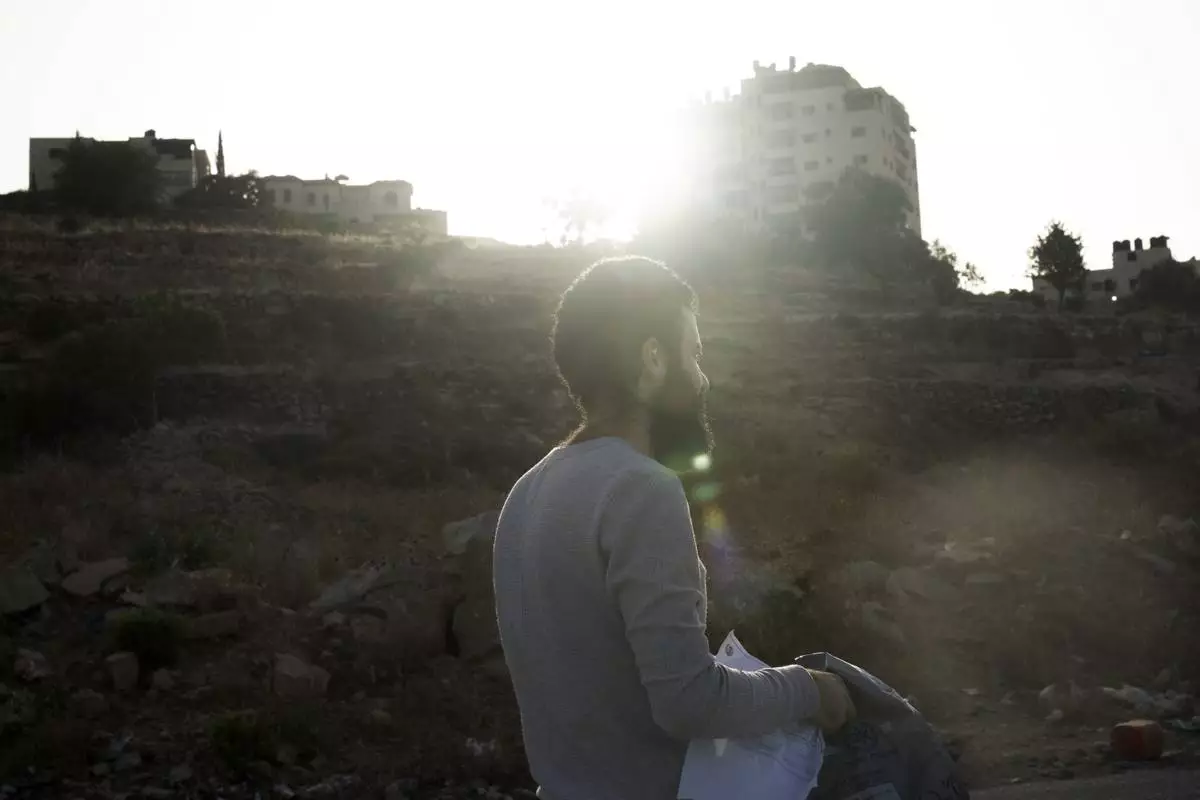
A Palestinian man carrying his personal effects leaves Israel's Ofer Prison near the West Bank city of Ramallah, Thursday, July 4, 2024. (AP Photo/Maya Alleruzzo)
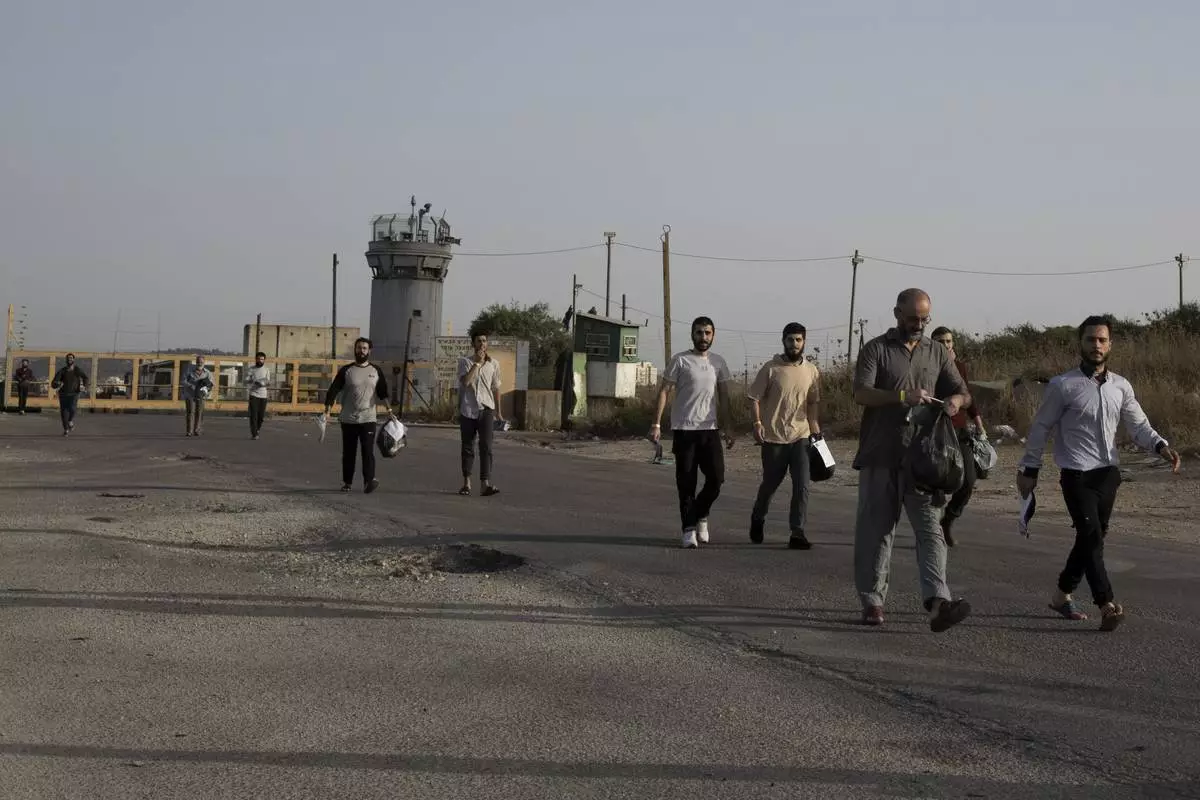
Palestinian men are released from Israel's Ofer Prison near the West Bank city of Ramallah, Thursday, July 4, 2024. (AP Photo/Maya Alleruzzo)
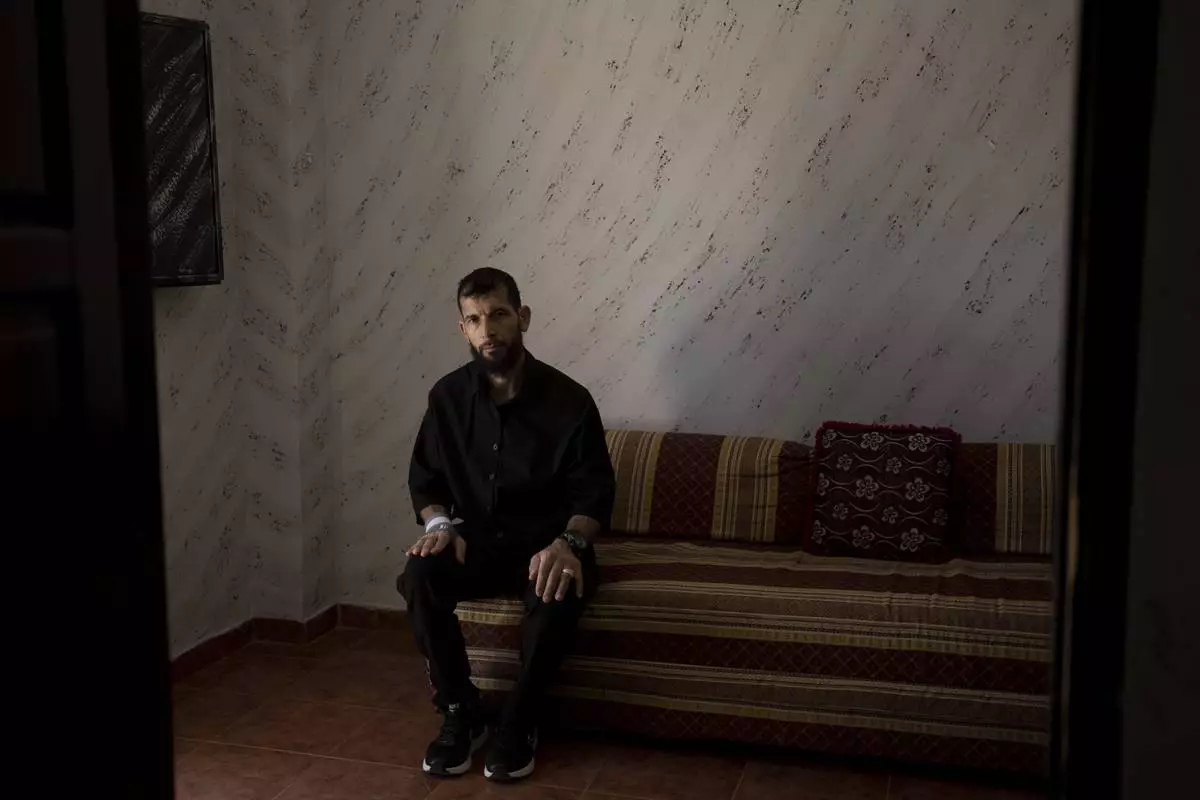
Freed Palestinian prisoner Muazzaz Abayat, 37, poses for a portrait at home in the West Bank city of Bethlehem, Wednesday, July 17, 2024, days after his release from Israel's Naqab Prison. “At night, he hallucinates and stands in the middle of the house, in shock or remembering the torment and pain he went through,” said his cousin, Aya Abayat. (AP Photo/Maya Alleruzzo)
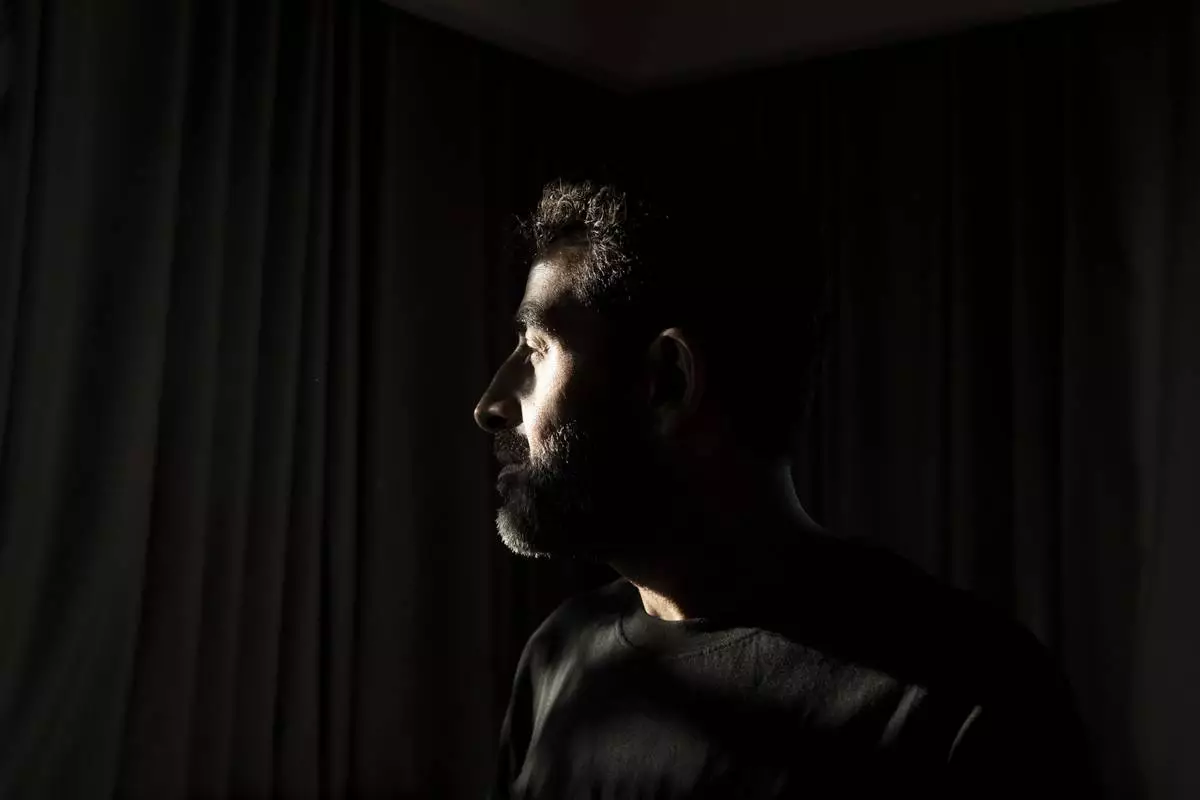
Freed Palestinian prisoner Mohamed al-Salhi poses for a portrait at home, in the West Bank city of Ramallah, Wednesday, July 3, 2024. He saw harsher conditions in his Israeli-run prison in Jerusalem immediately after Oct. 7, 2023, while he was serving a 23-year sentence for forming an armed group. (AP Photo/Maya Alleruzzo)
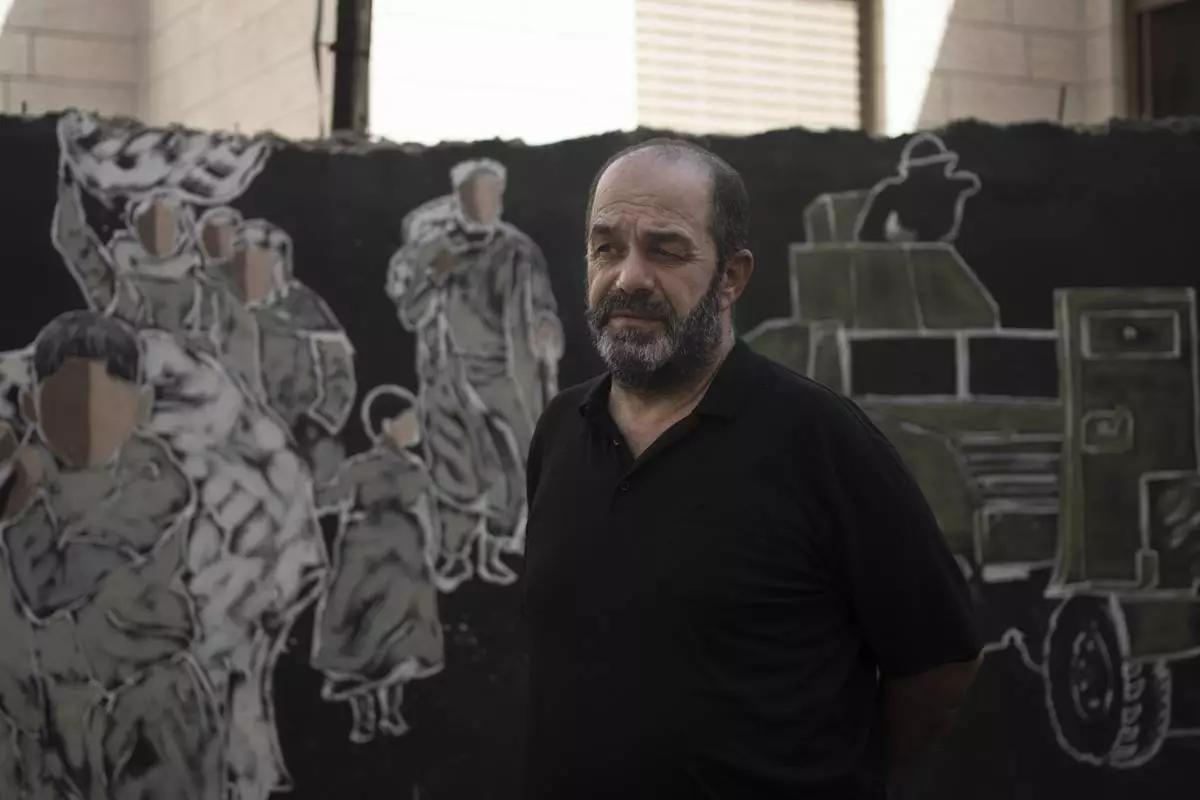
Palestinian activist Munthir Amira, who was arrested and jailed by Israel in December, poses for a portrait inside of the Aida refugee camp in the West Bank city of Bethlehem, Friday, July 5, 2024. During months in administrative detention, he said prison guards regularly beat detainees for punishment or often for no reason at all. (AP Photo/Maya Alleruzzo)
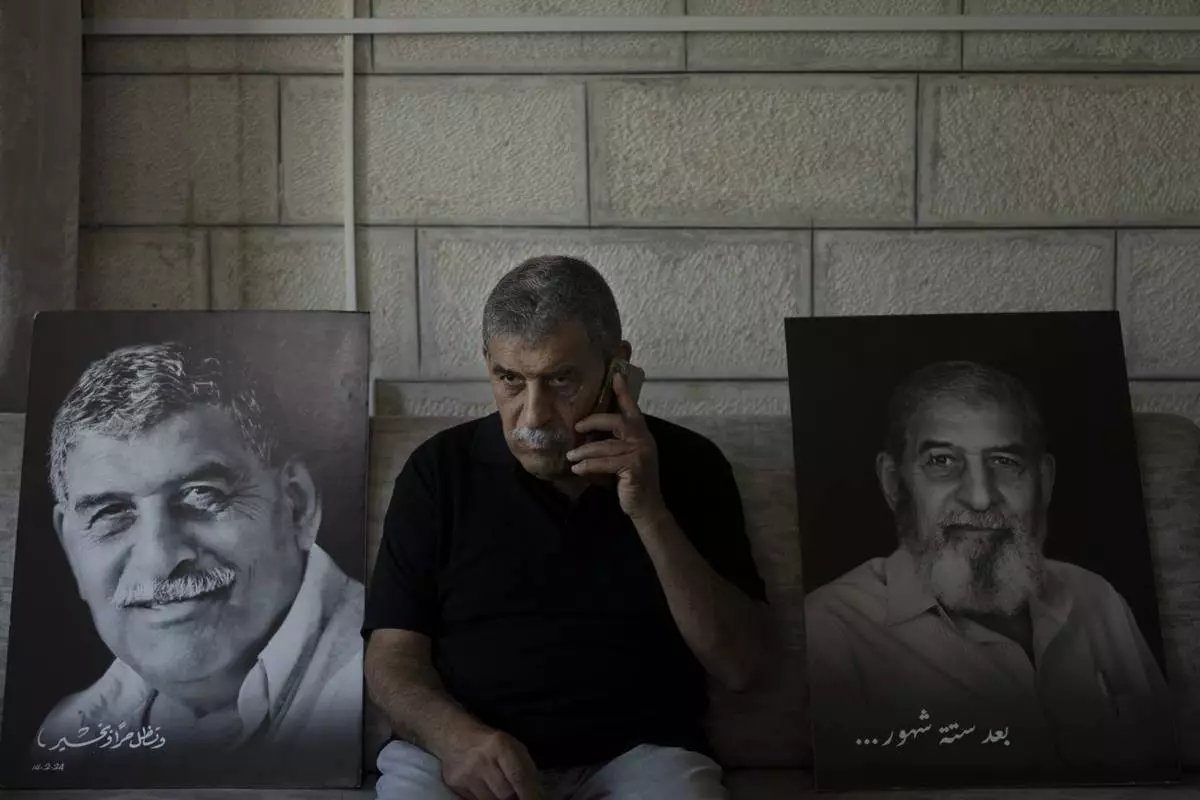
Retired Arabic language professor Omar Assaf speaks on his mobile phone between two photos of himself: on the left, an undated photo before he was held by Israel under administrative detention at Ofer Prison, and at right, after his release, at his home in the West Bank city of Ramallah, Wednesday, July 3, 2024. (AP Photo/Maya Alleruzzo)

This undated photo from Winter 2023 provided by Breaking The Silence, a whistleblower group of former Israeli soldiers, shows blindfolded Palestinian prisoners captured in the Gaza Strip by Israeli forces at a detention facility on the Sde Teiman military base in southern Israel. (Breaking The Silence via AP)
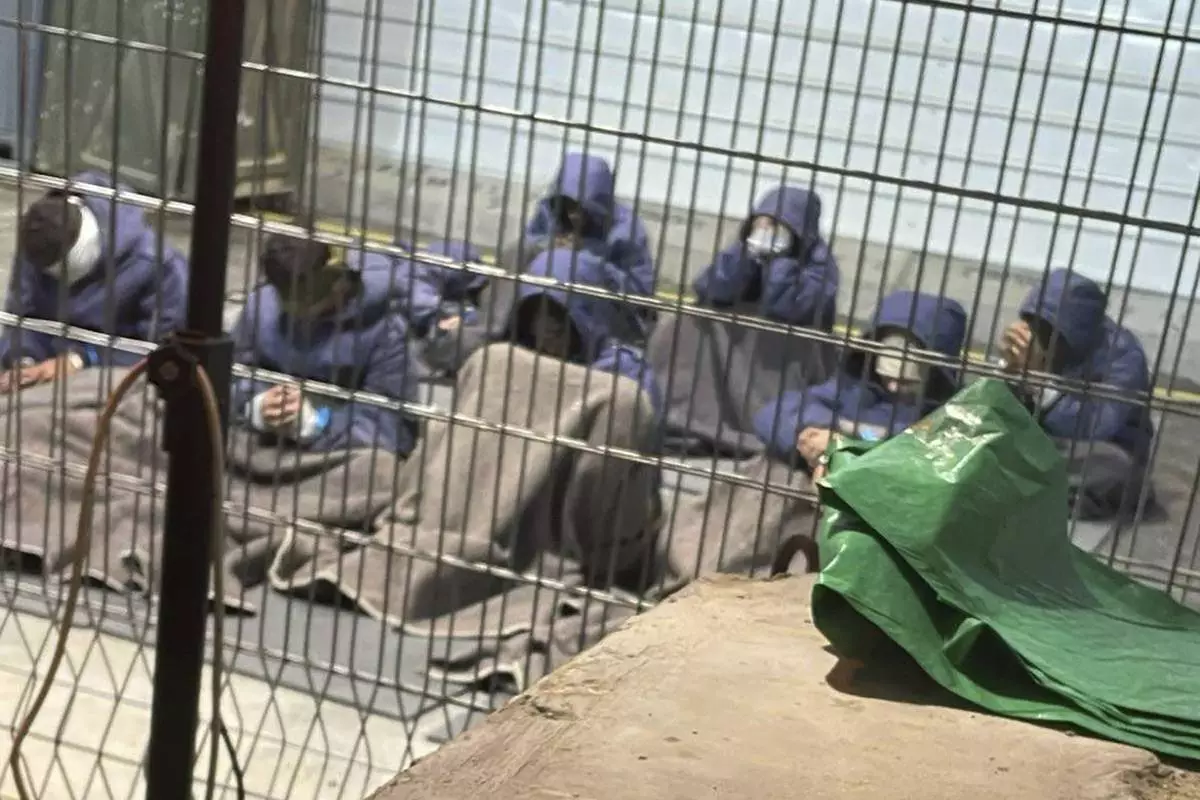
This undated photo from Winter 2023 provided by Breaking The Silence, a whistleblower group of former Israeli soldiers, shows Palestinian prisoners captured in the Gaza Strip by Israeli forces at a detention facility on the Sde Teiman military base in southern Israel. (Breaking The Silence via AP)
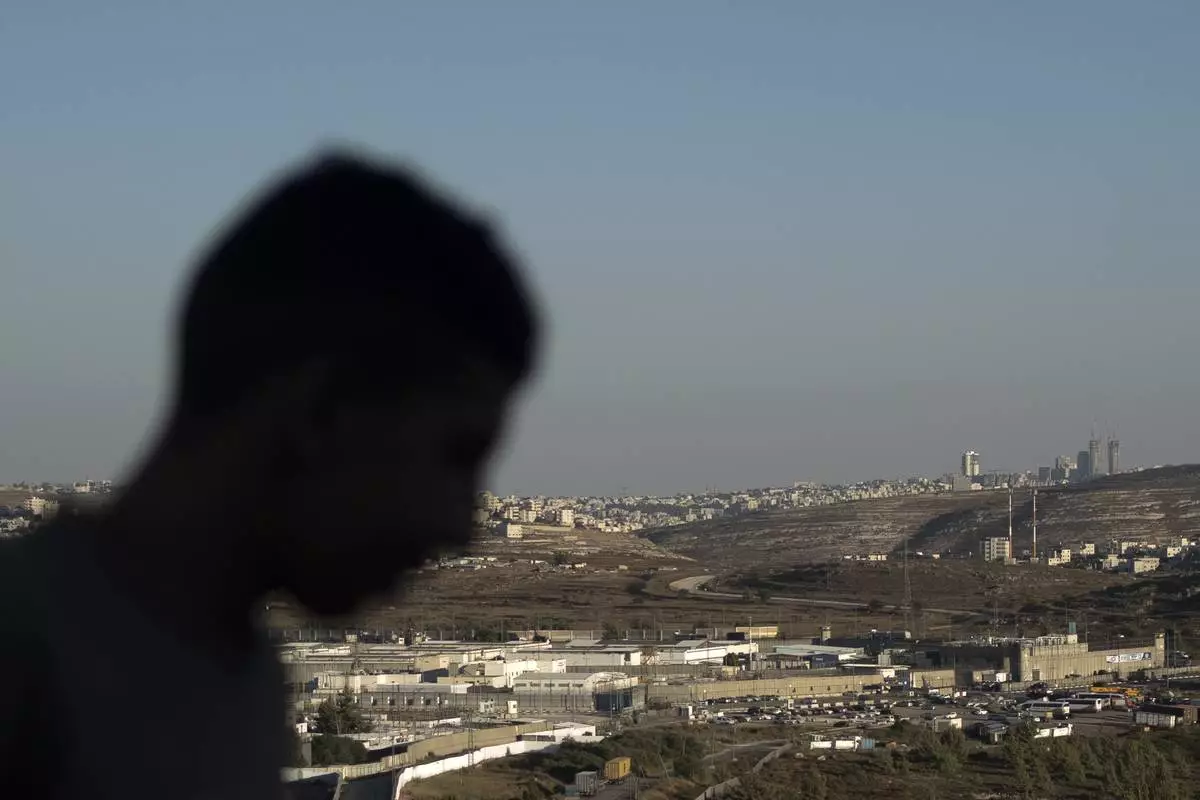
A Palestinian youth stands on a hill overlooking Israel's Ofer Prison, near the West Bank city of Ramallah, Wednesday, July 3, 2024. Released Palestinians have described to The Associated Press worsening abuses in Israeli prisons crammed with thousands detained since the war in Gaza began 10 months ago. (AP Photo/Maya Alleruzzo)
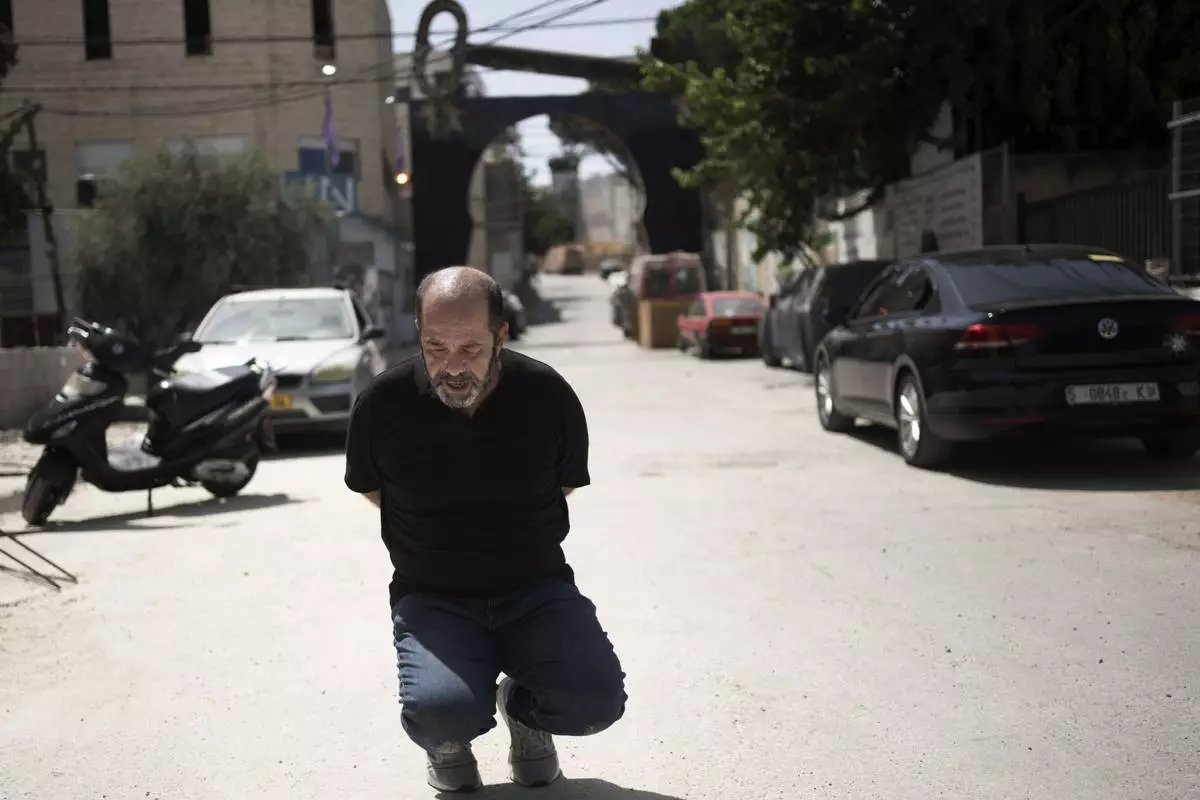
Palestinian political activist Munthir Amira demonstrates how he was treated by Israeli guards during his imprisonment, outside of the gate to Aida refugee camp in the West Bank city of Bethlehem, Friday, July 5, 2024. He said that he seemed to have been detained over his Facebook posts against the Gaza war since he was interrogated about them. (AP Photo/Maya Alleruzzo)
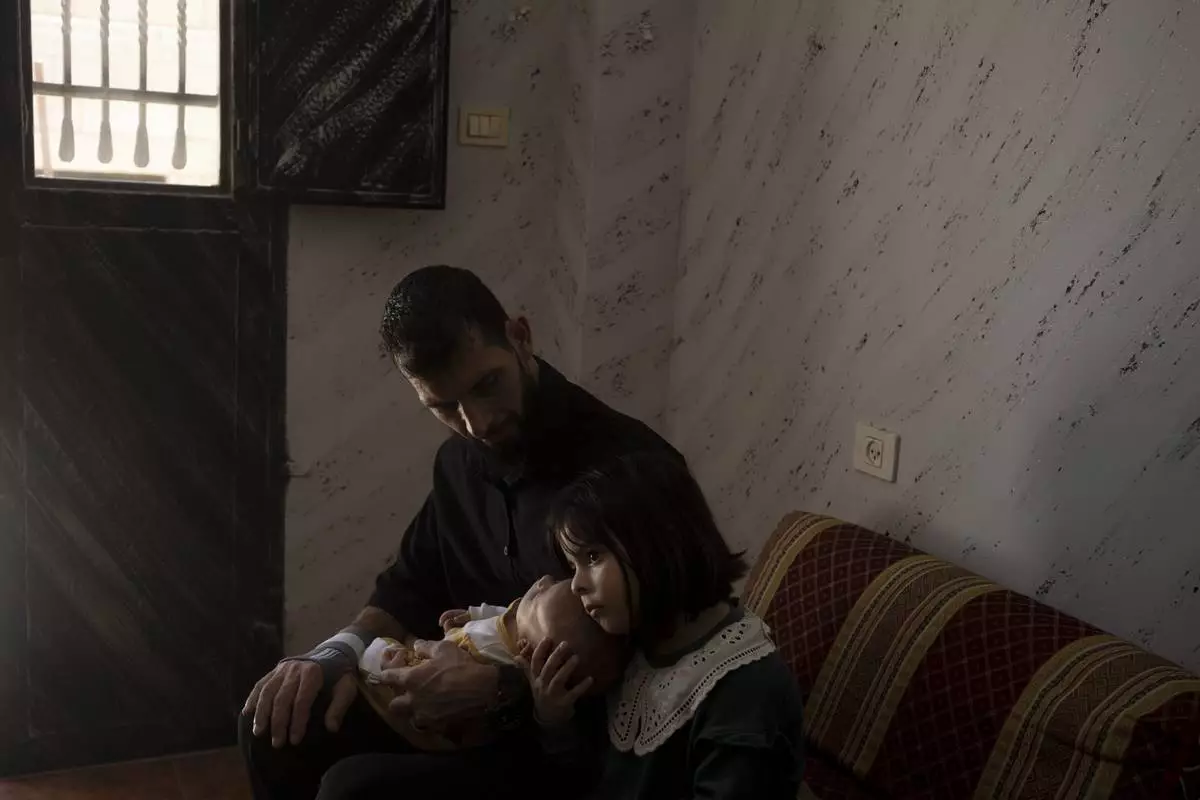
Palestinian boxer Muazzaz Abayat, 37, holds his 2-month-old son Mohammed and daughter Mira, 5, at home in the West Bank city of Bethlehem, Wednesday, July 17, 2024, days after his release from Israeli prison, frail, disoriented and with no initial memory of his family. (AP Photo/Maya Alleruzzo)
ROME (AP) — Human rights groups voiced outrage Wednesday after Italy released a Libyan warlord on a technicality, after he was arrested on a warrant from the International Criminal Court accusing him of war crimes and crimes against humanity.
The Hague-based court, for its part, issued a more diplomatic response but its anger appeared evident. In a stern statement late Wednesday, the ICC reminded Italy that it is obliged to “cooperate fully” with its prosecutions and said it was still awaiting information about what exactly Rome had done.
The reaction came after the Italian government on Tuesday released and sent back home Ossama Anjiem, also known as Ossama al-Masri, who heads the Tripoli branch of the Reform and Rehabilitation Institution, a notorious network of detention centers run by the government-backed Special Defense Force.
Al-Masri had been arrested Sunday in Turin, where he reportedly had attended the Juventus-Milan soccer match the night before. The ICC warrant, dated the day before, accused al-Masri of war crimes and crimes against humanity committed in the Mitiga prison in Libya starting in 2015 that are punishable with life in prison.
The ICC said he was accused of murder, torture, rape and sexual violence. It said the warrant was transmitted to member states on Saturday, including Italy, and that the court had also provided real-time information that he had entered Europe.
The court said it had reminded Italy at the time to contact it “without delay” if it ran into any problems cooperating with the warrant.
But Rome’s court of appeals ordered al-Masri freed Tuesday, and he was sent back to Libya aboard an aircraft of the Italian secret services, because of what the appeals court said was a procedural error in his arrest. The ruling said Justice Minister Carlo Nordio should have been informed ahead of time, since the justice ministry handles all relations with the ICC.
The ICC said it had not been given prior notice of the Rome court's decision, as required, and “is seeking, and is yet to obtain, verification from the authorities on the steps reportedly taken.”
Al-Masri returned to Tripoli late Tuesday, received at the Mitiga airport by supporters who celebrated his release, according to local media. Footage circulated online showed dozens of young men chanting and carrying what appeared to be al-Masri on their shoulders.
“This is a stunning blow to victims, survivors and international justice and a missed opportunity to break the cycle of impunity in Libya,” said Amnesty International’s Esther Major, deputy director of research for Europe.
Nordio appeared in the Senate on Wednesday for a previously-scheduled briefing, and was grilled by outraged opposition lawmakers who demanded clarity about what happened. Former Premier Matteo Renzi accused the right-wing government of hypocrisy given its stated crackdown on human traffickers.
“But when a trafficker whom the International Criminal Court tells us is a dangerous criminal lands on your table, it’s not like you chase him down, you brought him home to Libya with a plane of the Italian secret services,” said Renzi of the Italia Viva party. “Either you’ve gone crazy or this is the image of a hypocritical, indecent government.”
The Democratic Party demanded Premier Giorgia Meloni respond specifically to parliament about the case, saying it raised “grave questions” given the known abuses in Libyan prisons for which al-Masri is accused. Nordio didn't respond.
Italy has close ties to the internationally recognized government in Tripoli, on whom it relies to patrol its coasts and prevent waves of migrants from leaving. Any trial in The Hague of al-Masri could bring unwanted attention to Italy’s migration policies and its support of the Libyan coast guard, which it has financed to prevent migrants from leaving.
Human rights groups have documented gross abuses in the Libyan detention facilities where migrants are kept, and have accused Italy of being complicit in their mistreatment.
Two humanitarian groups, Mediterranea Saving Humans and Refugees in Libya, which have documented abuses committed against migrants in Libyan detention facilities, said they were incredulous that Italy let al-Masri go.
David Yambio, a 27-year-old from South Sudan who said he was abused by al-Masri while he was detained at the Mitiga prison in 2019-2020, said he felt betrayed by Italy. Yambio, who eventually escaped from the prison and arrived in Italy on a smuggler’s boat in 2022, said he had a “fleeting feeling of justice” when he heard that al-Masri had been arrested in Turin.
“Those who waited long before me, the Libyans who are victims of his criminal network, his war crimes, have been wanting for this day to come,” said Yambio, who received asylum and now lives in Modena and runs his Refugees in Libya advocacy group. “But when it came, it was immediately extinguished hours before it could even truly be felt in our hearts.”
But Tarik Lamloum, a Libyan activist working with the Belaady Organization for Human Rights which focuses on migrants in Libya, said Italy’s release of al-Masri was expected. He said his release shows the power of militias who control the flow of migrants to Europe through Libya’s shores.
“Tripoli militias are able to pressure (Italy) because they control the migrants file,” he told The Associated Press.
Militias in western Libya are part of the official state forces tasked with intercepting migrants at sea, including in the EU-trained coast guard. They also run state detention centers, where abuses of migrants are common.
As a result, militias — some of them led by warlords the U.N. has sanctioned for abuses — benefit from millions in funds the European Union gives to Libya to stop the migrant flow to Europe.
The European Commission spokesman reaffirmed all EU members had pledged to cooperate with the court.
“We respect the court’s impartiality and we are fully attached to international criminal justice to combat impunity," said EU commission spokesman Anouar El Anouni. In a 2023 summit, the EU leaders committed “to cooperate fully with the court, including rapid execution of any pending arrests,” he added.
Magdy reported from Cairo. Paolo Santalucia in Rome and Molly Quell in The Hague contributed.
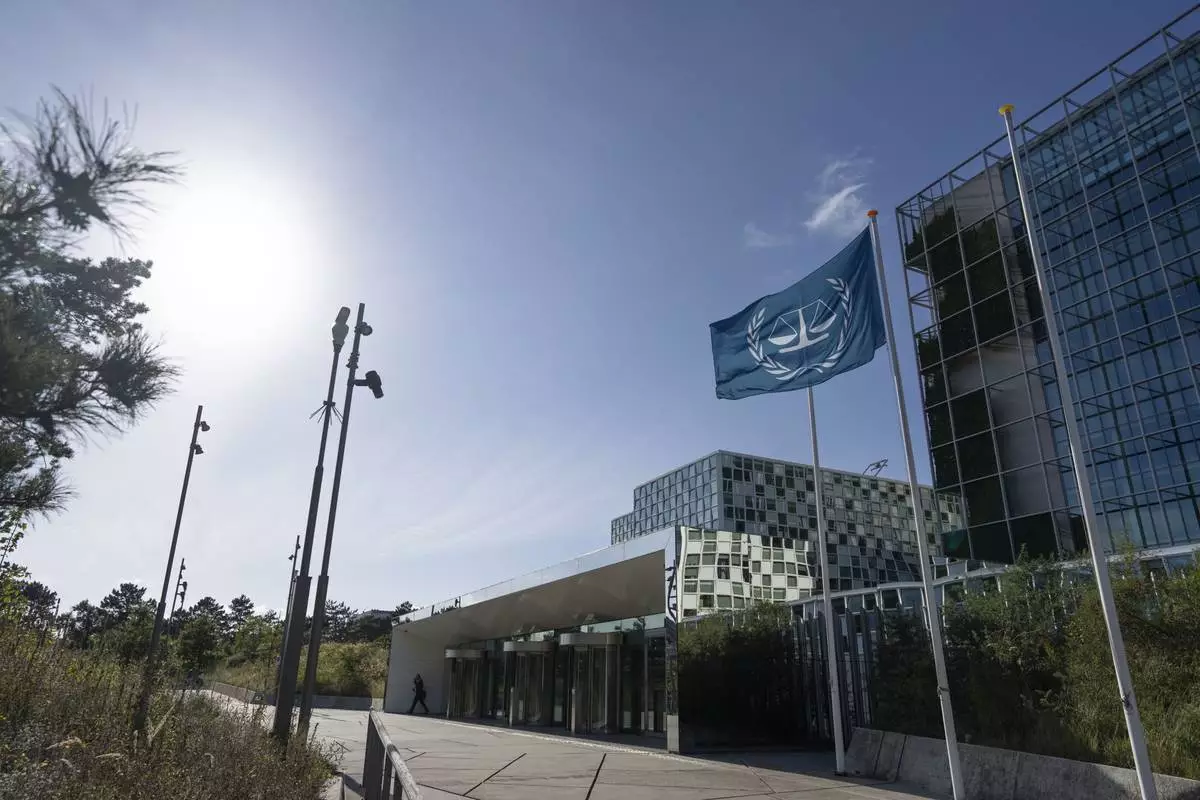
FILE - View of the ICC, the International Criminal Court, in The Hague, Netherlands, Monday, Sept. 16, 2024. (AP Photo/Peter Dejong, File)

Former Prime Minister Matteo Renzi makes his remarks during Justice Minister Carlo Nordio's appearance at the Senate for the report on the justice administration, in Rome, Wednesday, Jan. 22, 2025. (Roberto Monaldo//LaPresse via AP)

Former Prime Minister Matteo Renzi makes his remarks during Justice Minister Carlo Nordio's appearance at the Senate for the report on the justice administration, in Rome, Wednesday, Jan. 22, 2025. (Roberto Monaldo//LaPresse via AP)
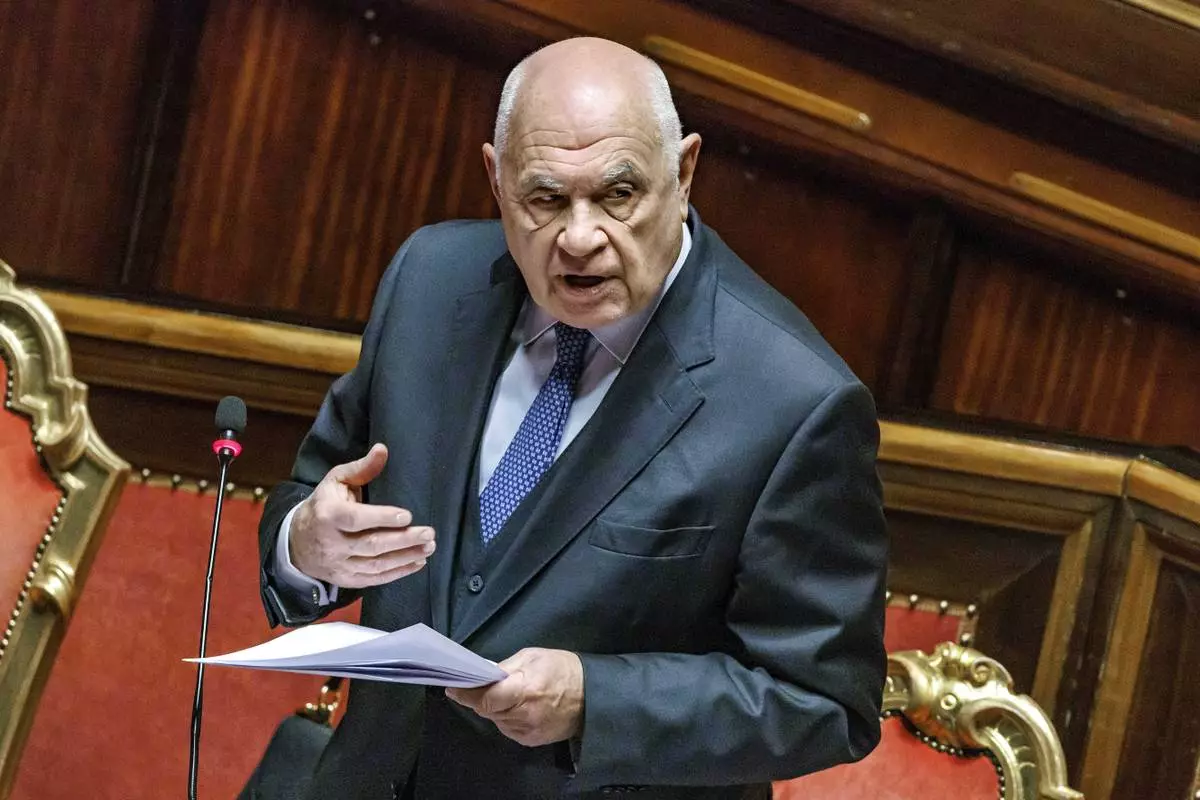
Justice Minister Carlo Nordio addresses the Senate during the report on the justice administration, in Rome, Wednesday, Jan. 22, 2025. (Roberto Monaldo//LaPresse via AP)
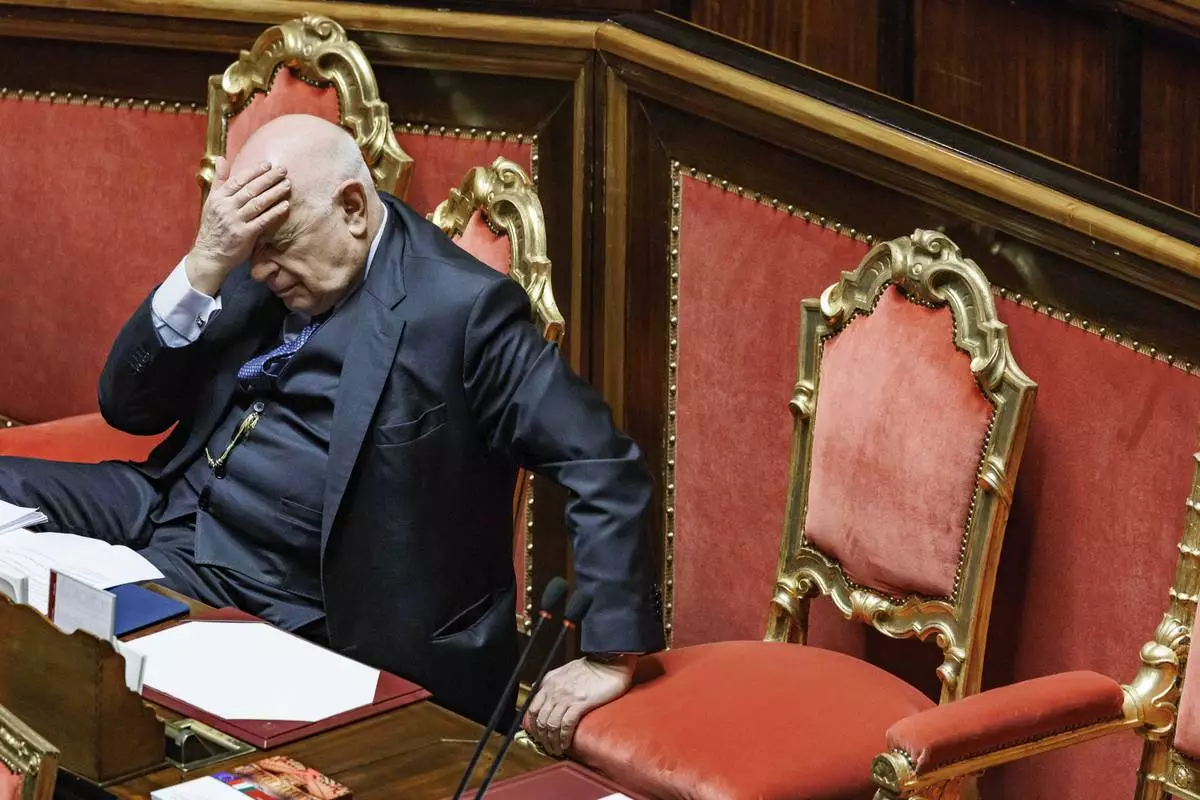
Justice Minister Carlo Nordio puts his hand to his head during the presentation of the report on the justice administration, at the Senate, in Rome, Wednesday, Jan. 22, 2025. (Roberto Monaldo//LaPresse via AP)
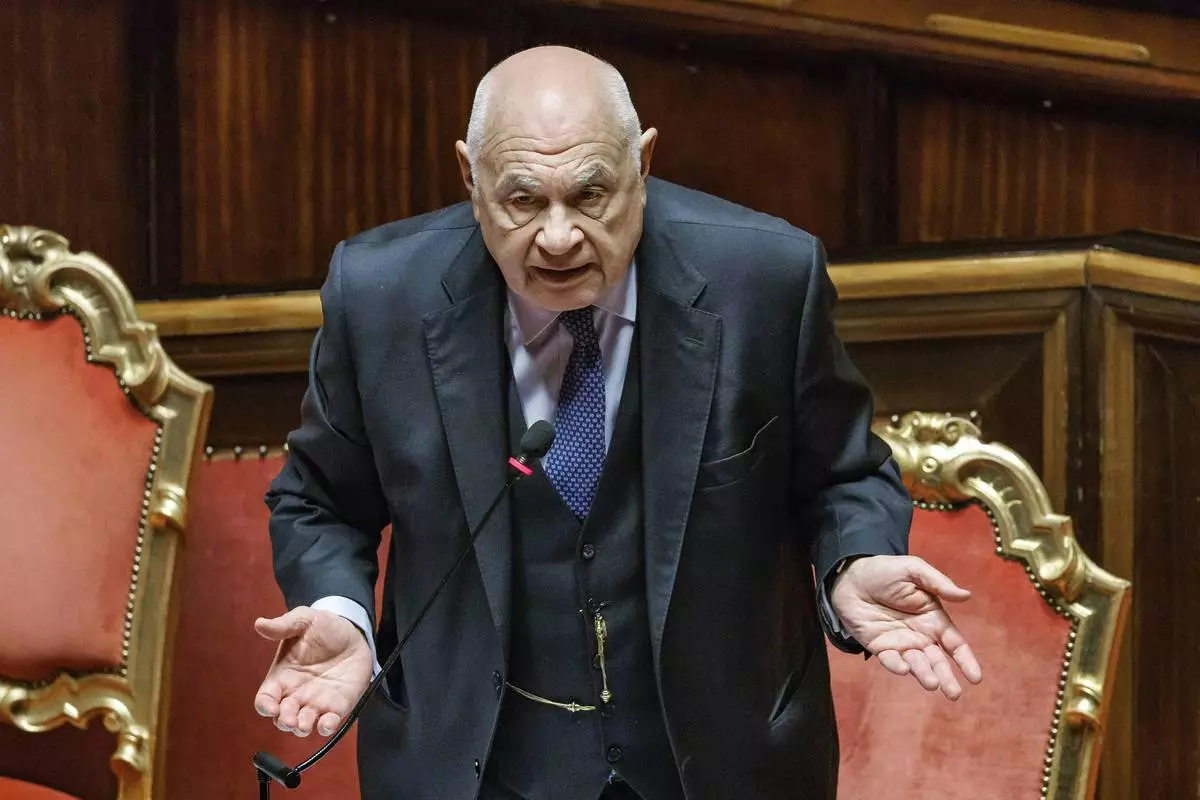
Justice Minister Carlo Nordio addresses the Senate during the report on the justice administration, in Rome, Wednesday, Jan. 22, 2025. (Roberto Monaldo//LaPresse via AP)














